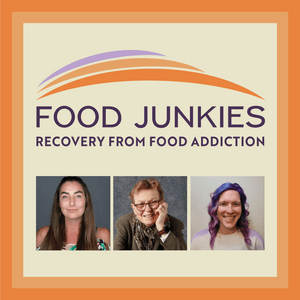Episode 238: Dr. Raphael E. Cuomo, Ph.D. - Addiction, Cancer & the Biology of Compulsion
In today’s episode, we explore the groundbreaking intersection of addiction, biology, and cancer with internationally recognized scientist Dr. Rafael Cuomo. Drawing on insights from his book Crave, Dr. Cuomo reveals how addiction is not simply a behavioral or psychological issue—it’s a biological condition that reshapes the terrain of our health and directly contributes to the development of chronic disease, including cancer. Dr. Cuomo introduces the concept of “molecular scars”—long-term physiological changes left behind by repeated addictive behaviors, even low-grade ones like screen use or ultra-processed food consumption. He explains how these behaviors disrupt key systems in the body, including the dopamine, opioid, GABA, glutamate, cortisol, and the endocannabinoid systems, ultimately weakening immune surveillance, fueling inflammation, and accelerating cellular damage. From the anticipatory nature of craving to the role of trauma and adverse childhood experiences, this episode invites clinicians, patients, and everyday listeners to reconsider addiction not as a character flaw, but as a biologically driven imbalance with profound public health implications. 🧠 Topics Covered: The hidden biological link between addiction and cancer What Crave reveals about chronic stimulation and health breakdown Why craving is more about anticipation than pleasure The difference between wanting and liking in addiction How repeated overstimulation rewires dopamine and reduces pleasure Molecular scars: the biological damage addiction leaves behind The role of inflammation, immune suppression, and cellular dysfunction How addiction disrupts neurotransmitters beyond dopamine (opioid, GABA, glutamate) The overlooked role of the endocannabinoid system in both addiction and cancer The impact of early life stress and ACE scores on long-term health How screen time, ultra-processed food, and digital overstimulation shape disease risk The concept of allostatic load as a measurable biological burden of chronic stress Metabolic memory and food insecurity's impact on eating behaviors Why oncology needs to integrate addiction screening into prevention and treatment How to begin restoring the body's natural rhythm to prevent disease 📚 About Our Guest: Dr. Rafael Cuomo is a biomedical scientist, global health researcher, and associate professor at the University of California, San Diego School of Medicine. With over 100 peer-reviewed publications and recognition from the Royal Society for Public Health, his work focuses on the biological intersections between addiction, cancer prevention, and public health policy. His new book, Crave: The Hidden Biology of Addiction and Cancer, uncovers how repeated behavioral addictions create a biological terrain that promotes chronic disease—and offers a new roadmap for prevention and healing. 📖 Key Quotes from Dr. Rafael Cuomo: “Addiction doesn’t just leave behavioral scars—it leaves molecular scars that change how your body functions.” “Cravings aren’t your character—they’re signals. And once we learn to listen to those signals, we can start rewriting our story.” “We need to shift prevention efforts upstream—not just focusing on behaviors, but addressing the mindset and environment that drive those behaviors.” “Chronic overstimulation from food, screens, and stress narrows our ability to feel genuine reward—leading to emotional flatness and compulsive seeking.” 🛠️ Tools for Listeners: Clean out environmental triggers (kitchen, phone apps, screen notifications) Introduce restorative rhythms: sleep, sunlight, movement, mealtime structure Develop emotional regulation strategies (breathwork, journaling, therapy) Recognize and reduce low-grade addictions before they escalate Understand how your body responds to stress to prevent long-term damage 📣 Take Action: If this episode resonated with you, pick up a copy of Dr. Cuomo’s book, Crave, to dive deeper into the science and solutions. Start observing the cravings in your daily life, and ask: What am I really seeking? Begin reclaiming your health—one small shift at a time. 📘 Mentioned in This Episode: Crave: The Hidden Biology of Addiction and Cancer by Dr. Rafael Cuomo 🔗 The International Food Addiction & Comorbidity Conference (IFACC) 2025: Donate for the chance to win a virtual ticket!! Purchase your IFACC 2025 in-person ticket!! The content of our show is educational only. It does not supplement or supersede your healthcare provider's professional relationship and direction. Always seek the advice of your physician or other qualified mental health providers with any questions you may have regarding a medical condition, substance use disorder, or mental health concern.


